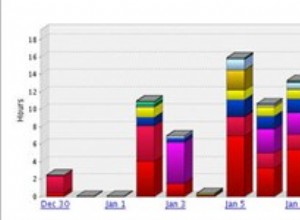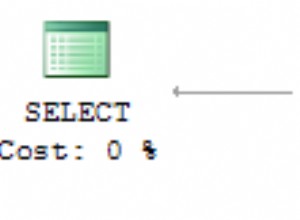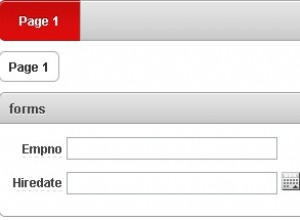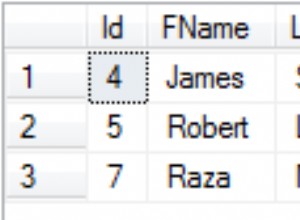Il tuo codice funzionerebbe solo con un altro [1] . La funzione .modify() impossibile interpretare il [sql:variable(...)] ... Questo potrebbe essere qualsiasi filtro, anche uno con più di un risultato... Quindi cambialo in:
DECLARE @xml xml = '<Root>
<Contacts>
<Contact name="John Doe" type="REG" other="value" />
<Contact name="Jane Doe" type="REG" other="value" />
<Contact name="Jennifer Doe" type="REG" other="value" />
<Contact name="Jane Doe" type="REG" other="value" />
</Contacts>
</Root>';
DECLARE @i int = 1
SET @xml.modify('replace value of (/Root/Contacts/Contact)[sql:variable("@i")][1]/@type with "NEW"')
SELECT @xml
Ma andrei in un altro percorso... Potresti leggere l'intero lotto come tabella derivata e ricostruire l'XML in questo modo:
SELECT
(
SELECT c.value('@name','nvarchar(max)') AS [@name]
--,c.value('@type','nvarchar(max)') AS [@type]
,'NEW' AS [@type]
,c.value('@other','nvarchar(max)') AS [@other]
FROM @xml.nodes('/Root/Contacts/Contact') AS A(c)
FOR XML PATH('Contact'),ROOT('Contact'),TYPE
)
FOR XML PATH('Root')
Un altro approccio sarebbe FLWOR:
SELECT @xml.query('
for $r in /Root/Contacts
return <Root><Contacts>
{
for $c in /Root/Contacts/Contact
return <Contact name="{$c/@name}" type="NEW" other="{$c/@other}"/>
}
</Contacts></Root>
')




